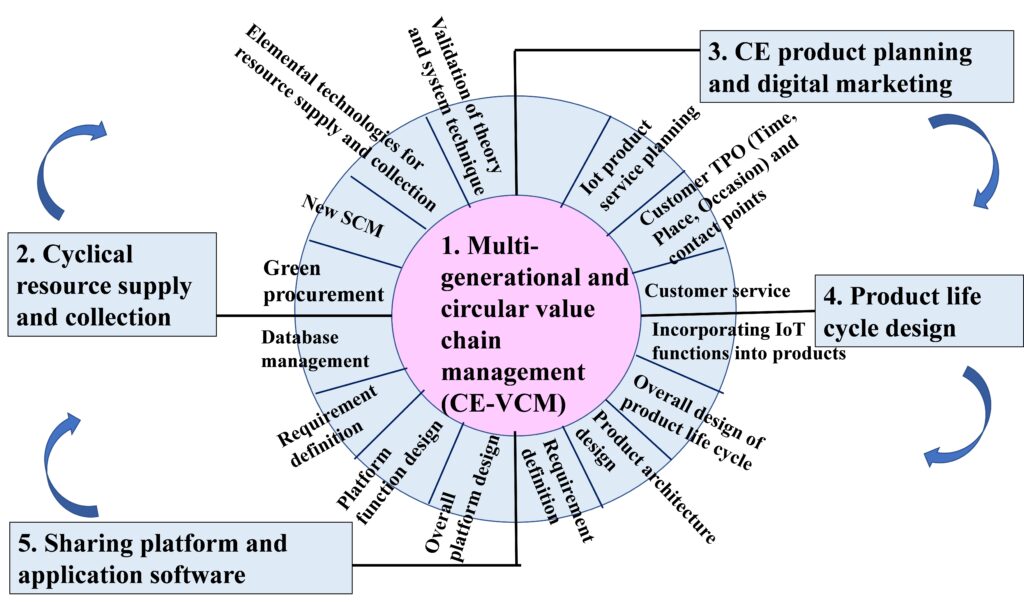New CE Theories and System Techniques for Grant-in-aid for Scientific Research, Japan
Our research theme is “the development, empirical research, and dissemination of new theories and system techniques of the circular economy (CE) to meet the SDGs “Goal 12: Producer and consumer responsibility” (Principal investigator: Kin’ya Tamaki, for Grant-in-aid for Scientific Research, Basic research (B), from 2022 to 2025, Japan).
1.Framework for New CE Theories and System Techniques
The first purpose is to present a research framework for research and development of five new theories and system techniques as described below (Figure):
1) Multi-generational and circular value chain management (CE-VCM)
2) Cyclical resource supply and resource collection
3) CE product planning and digital marketing
4) Life cycle product design
5) Sharing platform and application software compatible with CE-VCM

2.CE International Trend Surveys and Case Studies of Advanced CE Companies
The second purpose is to present how to proceed in international trend researches on CE policy and international standardization in each area and country (Japan, EU, USA), and in case studies regarding advanced CE companies in each industry.
(1) CE International Trend Surveys
The international trend surveys concerning CE policy and international standardization should be studied in each of the following four levels:
1) International standard (ISO, CE Technical Committee, ISO/TC323) level
2) Regional level (e.g., EU, North America, Asian regions)
3) Country level (e.g., the USA, Germany, Italy, Japan, etc.)
4) At the level of industry associations and unions and academic research trends by industry
(2) Research Approach for Case Studies of Advanced CE Companies by Each Industry
Case studies of advanced CE companies focus on the following six industrial fields:
1) Automobile
2) Electronics and devices
3) Construction
4) Food and agriculture
5) Chemical and materials
6) Software and platforms
 INQUIRY
JP
INQUIRY
JP